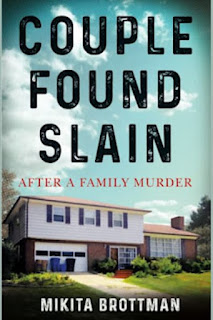Couple Found Slain
Critically acclaimed author and psychoanalyst Mikita Brottman offers literary true crime writing at its best, taking us into the life of a murderer after his conviction--when most stories end but the defendant’s life goes on.
On February 21, 1992, 22-year-old Brian Bechtold walked into a police station in Port St. Joe, Florida and confessed that he’d shot and killed his parents in their family home in Silver Spring, Maryland. He said he’d been possessed by the devil. He was eventually diagnosed with schizophrenia and ruled “not criminally responsible” for the murders on grounds of insanity.
But after the trial, where do the “criminally insane” go? Brottman reveals Brian’s inner life leading up to the murder, as well as his complicated afterlife in a maximum security psychiatric hospital, where he is neither imprisoned nor free. During his 27 years at the hospital, Brian has tried to escape and been shot by police, and has witnessed three patient-on-patient murders. He’s experienced the drugging of patients beyond recognition, a sadistic system of rewards and punishments, and the short-lived reign of a crazed psychiatrist-turned-stalker.
In the tradition of One Flew Over The Cuckoo’s Nest, Couple Found Slain is an insider’s account of life in the underworld of forensic psych wards in America and the forgotten lives of those held there, often indefinitely.
My Review
I have read several dozen true crime books but like author Mikita says, most focus on the events leading up to the crime and justice for the crime. That is where most of the books end. Which I have to admit that most of the time I don't spend much time thinking about the person or persons afterwards. So, I was intrigued to take a look more at the perpetrator's view after the trial.
In the case of Brian, he was sent to an institution to determine if he is considered competent to stand trial. It might seem like an institution would be a better place than prison but it is not. Sadly, not all of the people in an institution require long term care but a lot of them do end up there for the rest of their lives. The situation is not an improvement nor do the people receive the care that they require or need. Overall, I did like this book and the different point of view it gave me.




Comments